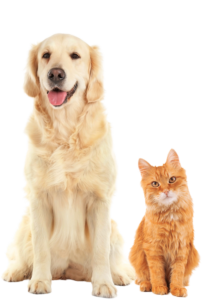The saying “killing with kindness” is not without truth. Overweight pets are at risk for diabetes, joint disease, skin issues – problems at best are annoying, and at worse, life-threatening. The easiest way to prevent weight-related health issues is to avoid obesity. Measure food as instructed by the package and limit treats. Use your annual physical exam as an opportunity for the veterinarian to review weight management and provide a nutritional consultation.
How do I know if my cat is overweight?
In general, any animal with an elevated body condition score would be considered overweight. Hill’s pet nutrition has developed a more objective metabolic measurement system that uses skeletal size in its calculations. Our staff and veterinarians would be happy to see your cat and provide an opinion on weight.
How can I help my cat to lose weight?
Losing weight requires commitment and creativity. The first step is determining how many calories your cat is consuming. The second step is to burn calories by increasing your cat’s activity. For cats, a large number of ‘exercises’ would also be considered environmental enrichment. Our staff can review methods of feeding that may enrich your pet’s life, as well as reduce weight. We also have access to nutritionists for input on a diet if struggling to succeed.
What is offered during a nutritional consultation?
Nutrition consults should be an opportunity for determining the ideal diet for your cat. Often this consultation is for monitoring your cat’s weight loss program, but feline nutrition is so much more. Feline idiopathic cystitis, dental disease, hyperthyroidism, and diabetes are all examples of conditions that benefit from nutritional support. Our staff are always interested in helping your cat get the best nutritional care possible.




